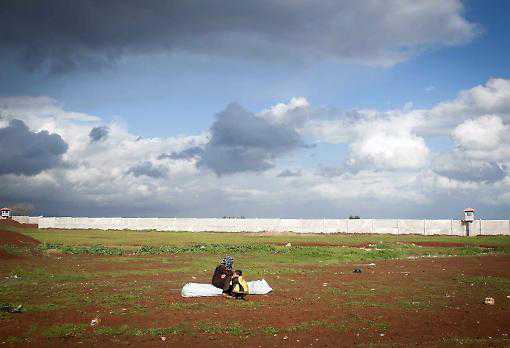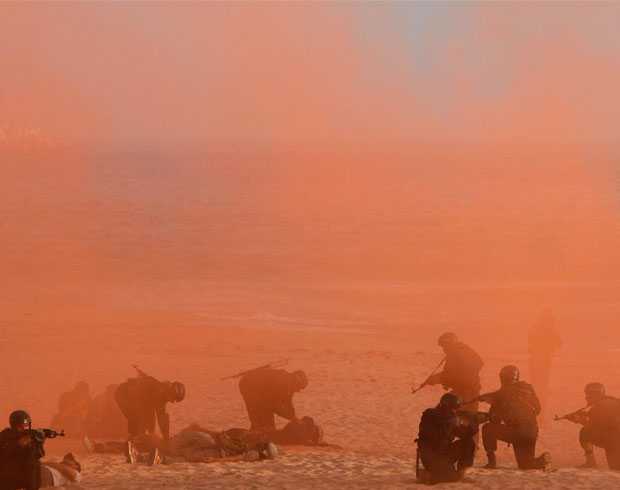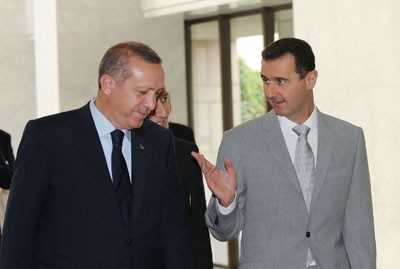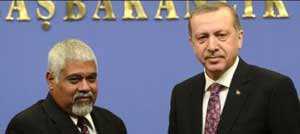Less fertile crescent
The waters of Babylon are running dry
Mar 9th 2013 |From the print edition
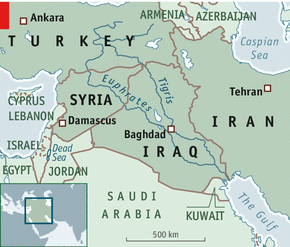 THE Middle East is arid. But it is also home to some of the world’s most fertile rivers, such as the Nile. So it is all the more alarming that one of its great river basins, the Tigris-Euphrates—which flows through the so-called fertile crescent that gave birth to agriculture itself—is getting drier. According to a study in Water Resources Research, an American scientific journal, between 2003 and 2009 the region that stretches from eastern Turkey to western Iran lost 144 cubic kilometres of fresh water.
THE Middle East is arid. But it is also home to some of the world’s most fertile rivers, such as the Nile. So it is all the more alarming that one of its great river basins, the Tigris-Euphrates—which flows through the so-called fertile crescent that gave birth to agriculture itself—is getting drier. According to a study in Water Resources Research, an American scientific journal, between 2003 and 2009 the region that stretches from eastern Turkey to western Iran lost 144 cubic kilometres of fresh water.
That figure is vast. It is equivalent in volume to the Dead Sea and, according to the study’s senior author, Jay Famiglietti of the University of California, Irvine, implies that the region is suffering the world’s second-fastest rate of water depletion after northern India. The water table sank by 0.3 metres (one foot) a year in 2006-09. At the point where the Euphrates crosses from Syria into Iraq, it now flows at only 70% of the rate it once did. All this in an area that already faces severe water shortages.
The study provides the first accurate estimate of all the water in the basin. National statistics are flawed and incomplete; some figures are even state secrets. But the study uses satellite data from America’s NASA which is not subject to these restrictions. These satellites not only measure surface water by photographs but, thanks to precise measurements of the effect of bodies of water on the atmosphere, can even calculate the amount of water in the aquifer below them.
The main reason for the depletion turns out to be that more water is being taken out of the underground aquifer, mainly by farmers. The rate of loss accelerated after drought hit the region in 2007. Between 2007 and 2009, in response to reduced flows of water in the rivers, Iraq’s government dug 1,000 new wells and abstracted four-fifths of all its groundwater reserves. The aquifer is not being replenished at anything like that rate, so this cannot continue for long.
The rapid depletion has implications for managing the basin, which is shared by Turkey, Syria, Iraq and Iran. All the countries have extensive dams, reservoirs and other sorts of infrastructure on both rivers which control the water’s flow. But they have no international treaty governing when and by how much they can shut the flow down.
Over the years, this has not mattered much. The countries have rubbed along, sometimes amicably, sometimes not, with downstream ones (notably Syria and Iraq) assuming there would always be enough water in the upstream reservoirs of Turkey for them all. But if the new study is any guide, that assumption may not hold for much longer. As Mr Famiglietti says, “The region is ripe for collaborating on the science of water management. Whether it is ready for an international legal framework, I have no idea.”
From the print edition: Middle East and Africa
via The Tigris and Euphrates: Less fertile crescent | The Economist.

